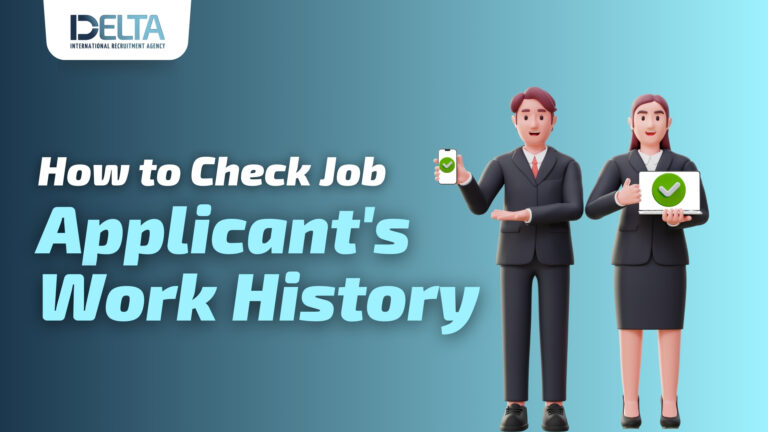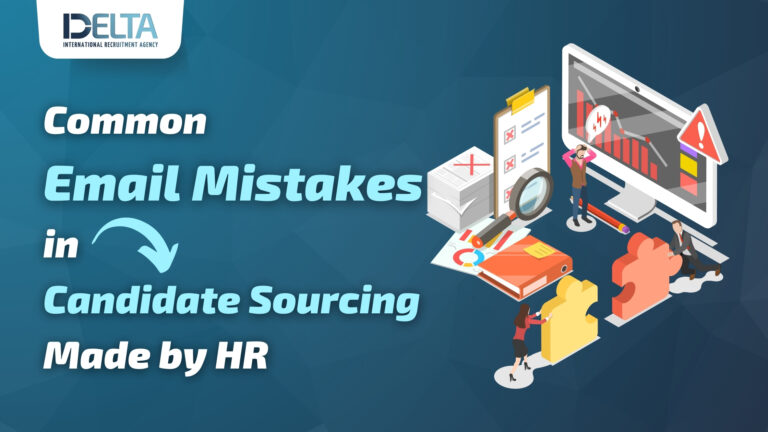Verifying a job applicant’s work history is crucial for business protection. Before hiring, ensure their past stands the test of time to avoid costly mistakes and legal issues. Using tools like employment verification and background checks can safeguard your business.
In the hiring process, it’s essential to focus on a candidate’s work history. Neglecting this step could expose your business to risks such as costly mistakes and potential fraud. By incorporating employment verification and background checks, you can confidently assess a candidate’s suitability and protect your business from unforeseen challenges.
4 Methods for Verifying Job Application Work History
1.
Inquire About Work History and References in the Application
2.
Spotting Deception in Job Applications
3.
Discussing Past Employment History in Interviews
4.
Verify Professional References
Image Source: indeed.com
1. Inquire About Work History and References in the Application
When checking a job candidate’s professional background, start by including work history details in the job application. If it’s a paper application, create a section for candidates to fill in details like company names, employment dates, locations, positions held, and main responsibilities. For online applications, provide a space for uploading a resume or entering relevant information.
Key Work History Details to Request:
- Company names
- Employment dates
- Locations
- Positions held/job titles
- Main responsibilities
Determining the Time Frame: Deciding how far back to request career details can be tricky. While there’s no set standard, consider advising applicants to include at least 10 years of employment history on their resume.
Setting Expectations for References:
Early in the application, make it clear that finalists will need to provide professional references speaking to their work ethic and professionalism. Some candidates may include this information directly on the application, streamlining the review process.
Pro Tip: Utilizing Credit Reports: Ordering a candidate’s credit report can aid in verifying previous employment. Check if their information matches (name, address, phone number) and gain insights into recent work history to ensure alignment with the job application details.
2. Spotting Deception in Job Applications
It’s not unusual for job seekers to exaggerate on resumes or even create fake businesses to deceive employers. As you narrow down your choices, focus on reviewing the applicant’s resume and work history.
How to Detect Potential Deception:
- Examine Application Materials: Scrutinize the resume, cover letter, and other documents for inconsistencies or spelling errors.
- Research Listed Companies: Look up unfamiliar companies online to ensure they are real. Confirm that the business name, location, and job positions align with what the applicant claims.
- Evaluate Employment Stability: Check if the candidate has a history of frequent short-term jobs or stable, long-term employment. Look for patterns that may raise questions about their consistency.
Handling Application Falsehoods: If you uncover lies in the application, decide whether to proceed with the candidate. Trust is crucial, and studies show that 51% of hiring managers would automatically disqualify a candidate for lying on their resume.
Understanding Employment Gaps: Unemployment periods are not always concerning. However, consistent short-term positions or unexpected interruptions may be red flags. If a candidate has a spotty work history, address gaps during an initial interview to understand the reasons behind them
3. Discussing Past Employment History in Interviews
Once you’ve verified a candidate’s resume, the next step is delving into their past during interviews. Whether it’s a phone call or face-to-face meeting, interviews offer valuable insights into an applicant’s career.
Key Interview Strategies:
- Provide Interviewers with Application Details: Equip all interviewers with a copy of the candidate’s application to ensure everyone is on the same page.
- Ask Insightful Questions: Pose high-quality, open-ended questions about their previous
jobs, employment dates, and duties. Examples include:
- “What achievement are you most proud of from your time at X company?”
- “How have your past roles prepared you for the responsibilities of this position?”
- “Share a situation where you disagreed with a supervisor at X company. How was it resolved?”
Uncovering Irregularities: Asking specific questions about their work history can help identify any inconsistencies. Genuine candidates with real experience usually find it easy to discuss their past employment.
Interview Tip: Maintain consistency in questioning by using an interview scorecard or a similar system. This approach enhances focus on Recruitment Agencies for Qatar in Pakistan, introduces objectivity, facilitates discussion among interviewers, and ensures that crucial hiring criteria remain a priority.
Image Source: indeed.com
4. Verify Professional References
As a candidate moves closer to receiving a job offer, it’s crucial to exercise more caution, not less. In the final stages of hiring, request a set of professional references from the applicant who can speak about their past job performance and workplace personality.
Reference Information Checklist:
- Reference name and job title
- Relationship to the candidate
- Duration of acquaintance with the candidate
- Email address
- Phone number
Before contacting the references, conduct some research to ensure their authenticity. Check if the provided email is personal or professional, verify their presence on the company’s website, and confirm the phone number aligns with their claimed workplace.
While inconsistencies don’t always indicate fraud, it’s wise to be vigilant for obvious discrepancies.
Tips for Conducting Reference Checks:
- Make Phone Calls: Opt for phone calls over emails for reference checks, as it’s more challenging for fake references to create instant, fabricated responses.
- Ask Quality Questions: Dive into the relationship with the candidate and follow up with specific questions that only a colleague could answer.
- Discuss Challenges: Inquire about both successes and areas of growth, as most managers can provide insights into challenges as well as achievements.
Find the Best Overseas Workers with Delta International!
In summary, Delta International Recruitment Agency is your go-to partner for superior international talent acquisition. Our expertise ensures a seamless recruitment process, making them the optimal choice for organizations seeking top-tier global professionals. Choose Delta International for International recruitment from Pakistan and a strategic approach to workforce enhancement.
Tips for Employers: A Guide for Checking a Job Applicant’s Work History




